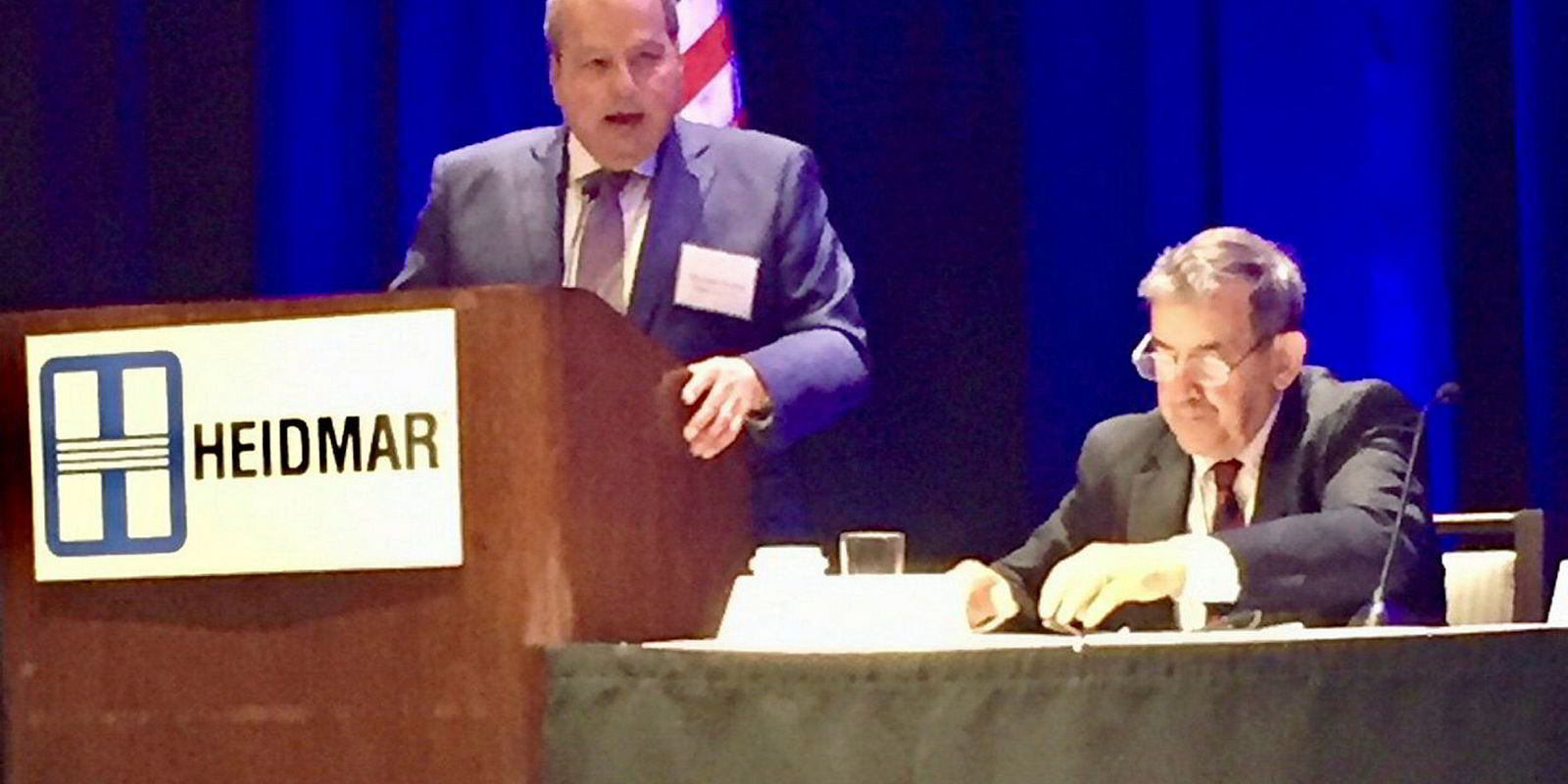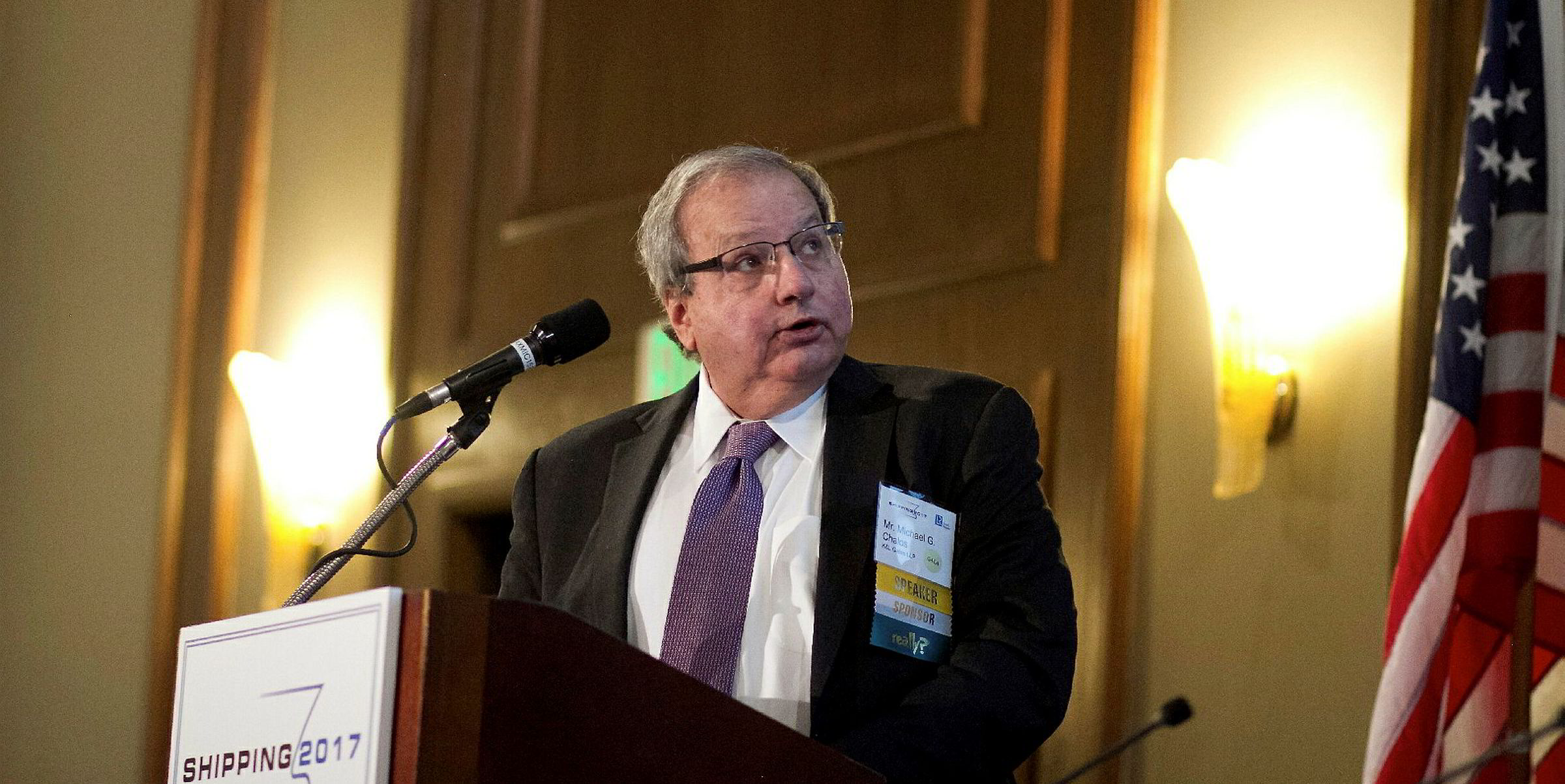There was a little case of father-and-son disagreement today at the Heidmar Marine Forum in Houston. You might even call it a legal dispute.
Veteran maritime lawyer Michael Chalos told his audience that port-state control officials are likely to take a softer stance on enforcement action in the first six months after implementation of the IMO 2020 emissions deadline, so long as owners have a plan in place and keep good records.
“You can expect some leniency,” he said. “I don't think port state agencies will be that tough in the first six months after the rules go into effect. However, they will be tough if you don't have a plan in place. They want to see a plan and that you're keeping good technical files.”
Given that Chalos -- legendary defender of Exxon Valdez Captain Joseph Hazelwood — can be a tough critic of US government maritime prosecutions, the observation is of note in itself.
But since the comments were also being taken in by his lawyer son, George, they are also notable for being quite a different take.
Speaking at a TradeWinds IMO forum in February, George Chalos predicted that what he sees as heavy handed US enforcement “will be a disaster for the industry.”
He added, “IMO is clear in its ambition, but it doesn’t give the path forward to comply. We have refinery challenges. We have scrubber challenges. Even if you want to put a scrubber on your vessel, you can't get one. You’re going to have lack of availability of compliant fuel.”
The younger Chalos also accused the Coast Guard of using “a hammer where a flyswatter will do.”
The conflicting views of the two Chalos & Co lawyers sets the stage for yet another IMO 2020 story.
"We'll see who's right,” Michael Chalos said after his prepared remarks.
The elder Chalos told his audience that he understands IMO representatives have been reaching out to port-state officials and urging them to go easy during the transition period.
“For a honeymoon period if there are any violations they will be treated with civil fines at first, but the government has the option of using criminal penalties," Michael Chalos said, while warning that trying to cover up violations by destroying records could indeed result in prison terms.






